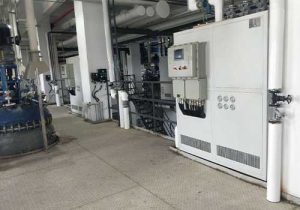motor chiller
Understanding Motor Chillers
Motor chillers are specialized cooling systems designed to remove excess heat from electric motors and other components in various industrial applications. They play a critical role in maintaining the efficiency and longevity of motors, especially in environments where heat generation is high.

Applications of Motor Chillers
Motor chillers are used in a wide range of applications, including:
HVAC Systems: In heating, ventilation, and air conditioning systems, motor chillers help maintain optimal temperatures by cooling the system’s components.
Industrial Processes: They are used in processes such as plastic injection molding, laser cutting, and chemical processing, where precise temperature control is required.
Automotive Industry: In electric vehicles, motor chillers are crucial for cooling battery packs, ensuring they operate within the desired temperature range for maximum performance and safety.
Features of Motor Chillers
Motor chillers are designed with specific features to enhance their performance and durability:
High Service Factor Motors: These motors are designed to handle heavy loads and operate at high temperatures, making them ideal for demanding applications.

Corrosion-Resistant Coating: The use of anti-corrosive epoxy resins protects the motor chiller from harsh environments, extending its service life.
Sealed Bearings: Double-sealed bearings filled with moisture-resistant grease ensure smooth operation in damp and high-humidity conditions.
Maintenance of Motor Chillers
Regular maintenance is essential for the optimal performance and longevity of motor chillers. Maintenance tasks include:
Inspections: Regular visual inspections to check for signs of wear, damage, or leaks.
Cleaning: Removing dust and debris from the chiller’s exterior and internal components to ensure efficient heat transfer.
Lubrication: Lubricating moving parts to reduce friction and prevent wear.
Performance Testing: Periodic testing of the chiller’s performance to ensure it meets the required specifications.

Efficiency and Safety
The efficiency of motor chillers is influenced by factors such as the design of the cooling passage and the operating conditions. Research has shown that increasing inlet pressure and decreasing back pressure can reduce the temperature of the stator winding and the permanent magnet in the motor. Safety is also a critical consideration, with features like tip-over protection and overheat switches to prevent accidents.
Conclusion
Motor chillers are vital components in many industrial and automotive applications, providing efficient cooling for electric motors and other heat-generating components. By understanding their features, applications, and the importance of regular maintenance, users can ensure the optimal performance and longevity of their motor chillers. Whether used in HVAC systems, industrial processes, or electric vehicle battery cooling, motor chillers play a crucial role in maintaining the efficiency and safety of various systems.
Related recommendations
How to Reduce the Operating Cost of Air-cooled Chillers?
1234How to Reduce the Operating Cost of Air-cooled Chillers? In life, we are all advocating energy saving and environmental protection, and air-cooled chillers are no exception. The chillers pur...
View detailsfree cooling unit
417Introduction to Free Cooling Units Free cooling units (FCUs) represent a significant advancement in the field of temperature management, particularly in data centers and industrial settings. By...
View detailsHow does a 5 ton chiller work?
995How does a 5 ton chiller work? In most cooling applications, the pump system circulates cold water or ethylene glycol solution from the cooler to remove heat. This cold fluid carries aw...
View detailsmini water chiller price
534Mini Water Chiller Price: Factors and Global Market Overview Mini water chiller systems are crucial for various industrial applications, and their prices can vary significantly based on several...
View details
 LNEYA Chiller
LNEYA Chiller







HelloPlease log in